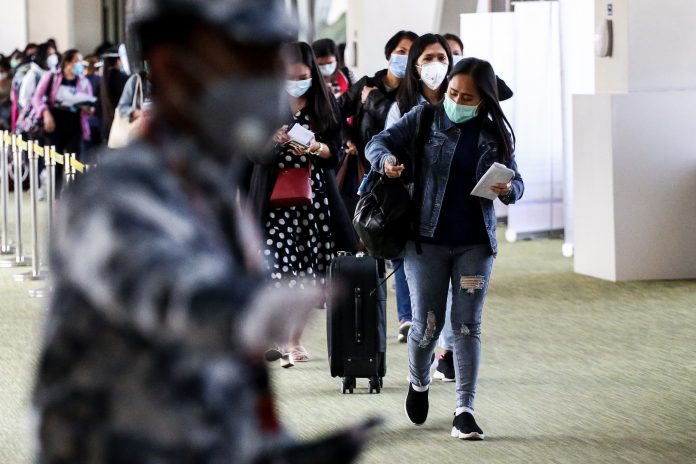When I was ten years old, my mother migrated to Los Angeles, California to work. Soon after that, my father followed her, leaving my two brothers and me under the care of our family members and domestic workers.
The calls my brothers and I received from my parents were brief and far in between as these were costly. This was in the late 90s, long before the arrival of smartphones, social media apps, or video messaging apps like Facebook Messenger, Viber, or Skype.
These technologies now enable migrants to easily and without a huge cost communicate and connect with their family members or friends who are working and living anywhere in the world.
For many Filipino migrant workers abroad, advancements in technology have been able to provide comfort as they navigate the long and painful separation from their children, spouses, and parents back in the Philippines.
They can check if their children have done their homework, watch their graduation ceremony live, virtually join a family reunion or birthday celebration, or share a prayer with their ailing mother or father.
Smartphones, the internet, and social media have become essential tools in their lives as migrants. For most Filipino migrants, visits back to their home provinces are expensive, and these are not even possible for many undocumented OFWs.
These digital tools can also provide migrants with access to the latest news and events in their host or home country and an opportunity to connect with migrant help groups and networks that offer invaluable services, support, and education about their rights to help empower them.
On the other hand, there is also the serious issue of widespread dissemination of “fake news” and disinformation especially on social media platforms, and its detrimental impacts on the lives of migrants that must be further investigated and combatted.
Not all migrant workers, however, have access to these technologies. I think of our seafarers who are onboard vessels for many months and have limited access to wi-fi connection or are not even allowed to access wi-fi by their companies.
Or the thousands of OFWs in detention and on death row overseas like Mary Jane Veloso in Indonesia who have to find a way to pay for every phone call that typically lasts no longer than five minutes.
And what about our domestic workers whose cell phones are confiscated by their employers, or our OFWs who work as seasonal agricultural workers in often faraway rural areas overseas and cannot afford a smartphone?
Many undocumented migrants might also experience difficulties in purchasing phone or internet plans that require government identification.
One human trafficking victim recruited from her province in Mindanao and transported to Syria to work as a domestic helper when she was 15 years old shared how upon her rescue and return to the Philippines, her family told her that they thought she was no longer alive because, for many years, she had no way of contacting them.
She tells me how she could hear the explosions caused by the war in that country while not having an idea about what was happening or how she can possibly escape.
Despite many advances in technology, many migrants are like this human trafficking victim: hearing the sounds made by high technology, but unable to access the very technology she badly needs to send a sign of, or to actually experience, life.
Jonna Concepcion is the chairperson of Migrante International. This piece was first published as a column in Migrante International’s newsletter, Tinig Migrante, and Bulatlat.









